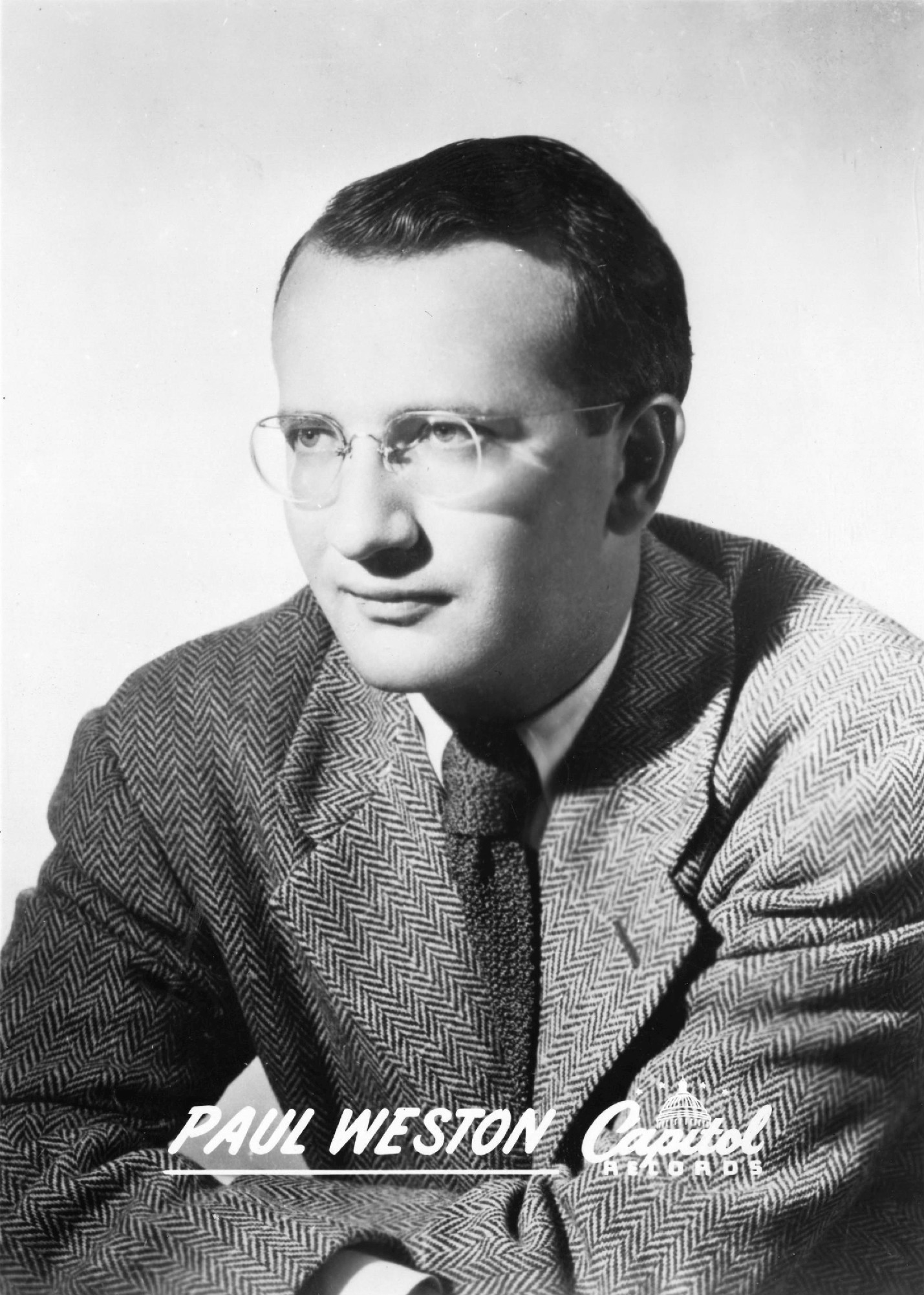Weston, Paul, 1912-1996
Enlarge text Shrink text- His This time, 1946.
- Porter, C. Easy to love [SR] 194-?:label (Paul Wetstein)
- Kinkle, R.D. The complete encycl. of pop. mus. and jazz, c1974(Weston, Paul (Paul Wetstein); b. Mar. 12, 1912, Pittsfield or Springfield, Mass.; piano, arranger, composer)
- The Piano artistry of Jonathan Edwards, 195-?:label (Jonathan Edwards)
- Hemming, R. Discovering great singers of classic pop, c1991:p. 162 (Jo Stafford and Paul Weston also recorded under the pseudonyms Darlene and Jonathan Edwards)
- FirstSearch NewsAbs, 11-26-96(Paul Weston; d. Sep. 20, 1996, age 84; conductor, arranger)
- IMDb, July 29, 2005(Paul Weston; b. Mar. 12, 1912, Mass.; d. Sept. 20, 1996, Santa Monica, Calif.; sometimes credited as Jonathan Edwards)
Paul Weston (né Wetstein; March 12, 1912 – September 20, 1996) was an American pianist, arranger, composer, and conductor who worked in music and television from the 1930s to the 1970s, pioneering mood music and becoming known as "the Father of Mood Music". His compositions include popular music songs such as "I Should Care", "Day by Day", and "Shrimp Boats". He also wrote classical pieces, including "Crescent City Suite" and religious music, authoring several hymns and masses. Born in Springfield, Massachusetts, Weston had a keen interest in music from an early age and learned to play the piano. He was educated at Springfield High School, then attended Dartmouth College and Columbia University. At Dartmouth, Weston formed his own band and toured with the college band. He joined Columbia's dance band, The Blue Lions, but was temporarily unable to perform following a rail accident, and did some arrangements while he recovered. He sold his first arrangements to Joe Haymes in 1934. When Haymes requested more material, Weston's music was heard by Rudy Vallée, who offered him work on his radio show. Weston met Tommy Dorsey through Haymes and in 1936 became a member of Dorsey's orchestra. He persuaded Dorsey to hire The Pied Pipers after hearing them in 1938, and the group toured with the bandleader. After leaving Dorsey in 1940, Weston worked with Dinah Shore and moved to Hollywood when he was offered film work. In California he met Johnny Mercer, who invited him to write for his new label, Capitol Records. Weston became music director there, where he worked with singer Jo Stafford and developed the mood music genre. Stafford moved with him to Columbia Records in 1950, and they were married in 1952. Weston worked extensively in television from the 1950s to the 1970s. He helped start the Grammy Awards, which were first presented in 1959. He was honored with a Grammy Trustees Award in 1971 and spent three years as music director of Disney on Parade. Weston and Stafford developed a comedy routine where they assumed the guise of a bad lounge act named Jonathan and Darlene Edwards. Their first album was released in 1957. In 1960, their album Jonathan and Darlene Edwards in Paris won the Grammy Award for Best Comedy Album. Weston's work in music is honored with a star on the Hollywood Walk of Fame.
Read more on Wikipedia >
 Personality
Personality




